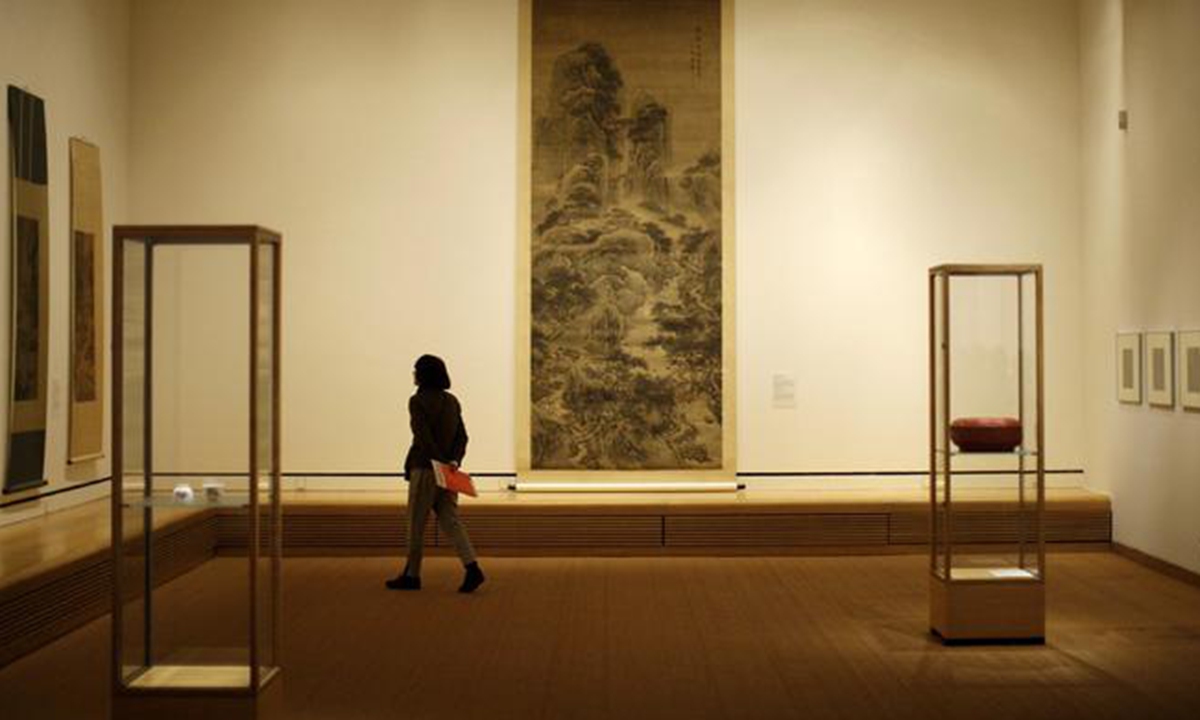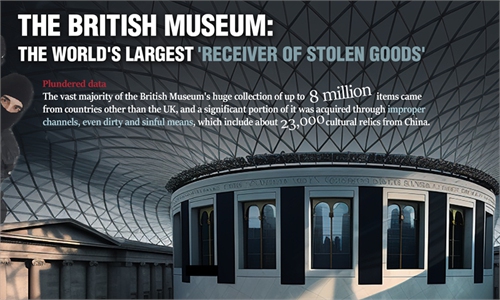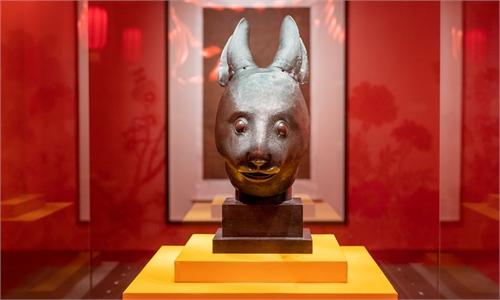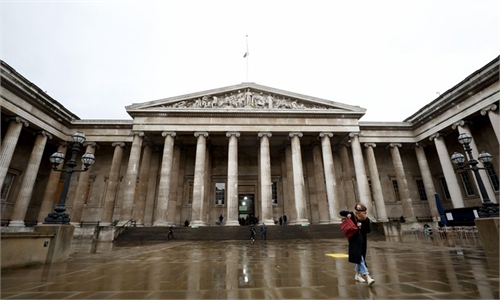ARTS / CULTURE & LEISURE
Rare Chinese porcelains purloined from German museum, sparking anger

The Museum for East Asian Art (Cologne) Photo: Xinhua
Nine ancient Chinese porcelain pieces, estimated to be worth more than 1 million euros ($1.073 million), have recently been stolen from a museum in Cologne, Germany that boasts a prolific collection of East Asian art.Those stolen artifacts in The Museum for East Asian Art (Cologne) - considered one of the oldest museums for Eastern Asian cultural relics in Europe with prolific treasures rooted in China, Japan and Korea - were mainly Chinese porcelain vases, plates and bowls made during the Ming (1368-1644) and Qing (1644-1911) dynasties.
According to a photo claiming to reveal the museum's "stolen relics list," at least three porcelain vases belonging to the Qianlong period were stolen. They were made in Jingdezhen, China's 1,000-year-old porcelain capital in East China's Jiangxi Province and the maker of the country's finest porcelain craftsmanship during the Qing Dynasty.
"I really hope those stolen pieces won't be smashed since each vase could be the last of its kind in the world," said Qing Dynasty relics expert Li Qiuzhu, adding that the disappearance of relics may trigger "concerns of illegal activities such as counterfeiting."
According to the museum, security reported that two thieves had broken into the museum in the middle of the night. According to current investigations by the local police, these thieves pried open a window and took objects from museum's showcases. After hearing a massive noise made in the middle of the night, the burglary was noticed by museum's staff.
"I am speechless and deeply horrified, I am still totally in shock," Shao-Lan Hertel, director of the museum, told the media.
Yao Yu, a Chinese cultural expert, told the Global Times that he was "more stunned than angry and disappointed" by the "sluggish loose security management" of the museum, especially when the cultural institution is the "most prestigious of its kind in Europe."
"It triggers a trust issue in Western museums for us," Yao noted, adding that such a "brazen mistake" is the solidest evidence against such museums' "false claim they are the best home for foreign relics."
"Whenever the relic's repatriation topic is proposed, Western museums often question the relic's original country whether or not they can better care for them. This incident that happened is like a joke, or a slap in the face," Yao noted.
Chinese relics lost in Germany quickly became a trending topic on Sina Weibo, earning nearly 40 million views.
While some netizens expressed their "utter disappointment in European museums," some others even questioned the "authenticity of the incident."
"I know it sounds like a conspiracy, but could it be a fabricated incident to cover Western museum's true intention of not returning Chinese relics. I had this gut feeling very strongly after the British Museum incident," posted one netizen on Sina Weibo.
Not even a month ago, the UK's British Museum was involved in a huge scandal in which more than 2,000 artifacts were stolen from the site.
The crisis has triggered quite a phenomenon with surging voices from countries such as China and Egypt asking the museum to return the looted relics in its collection.
"The current incident in Germany will likely trigger a new round of criticism targeting Western museums. And, this time, I think international anger will likely grow bigger," Yao said.



